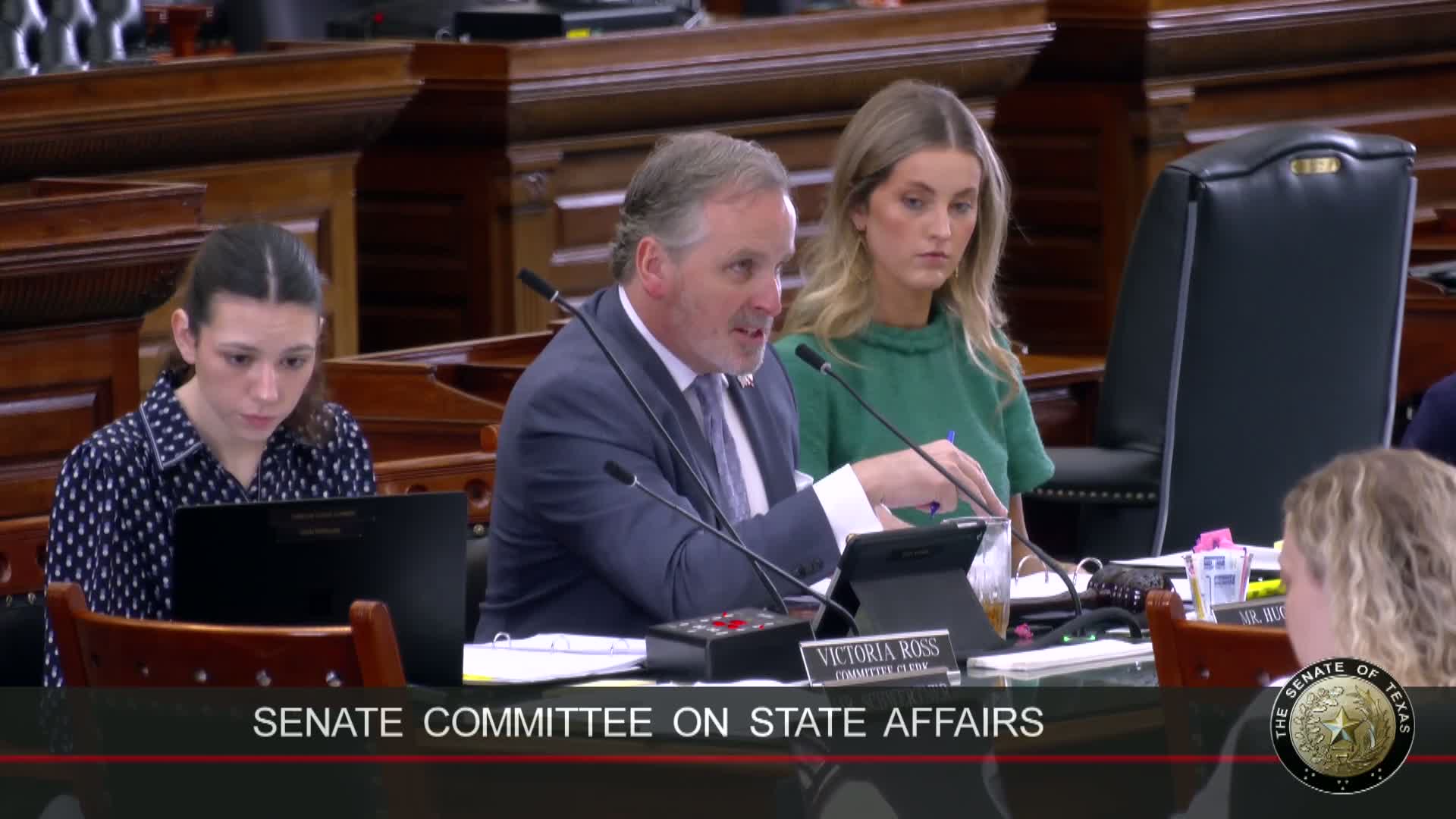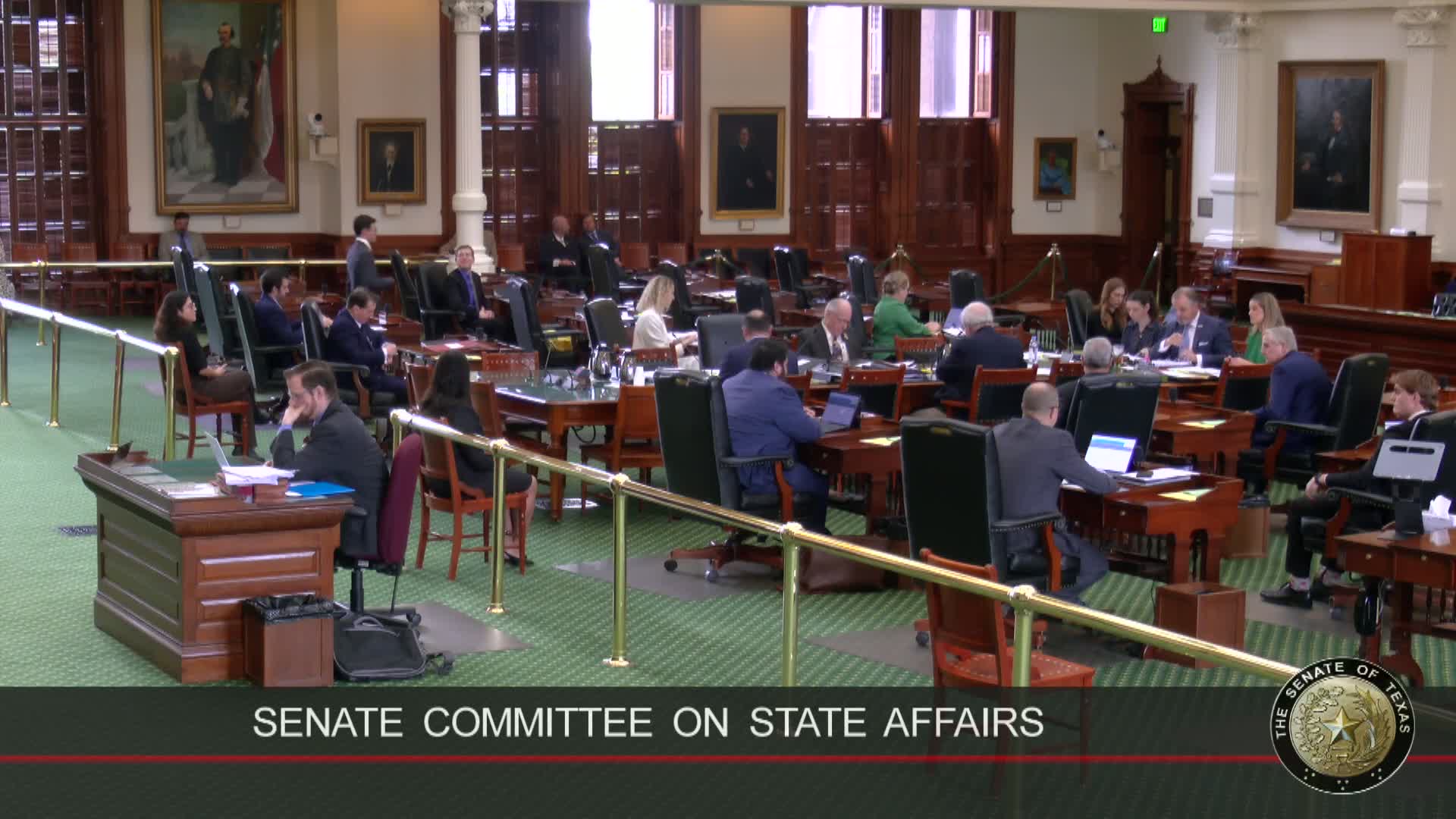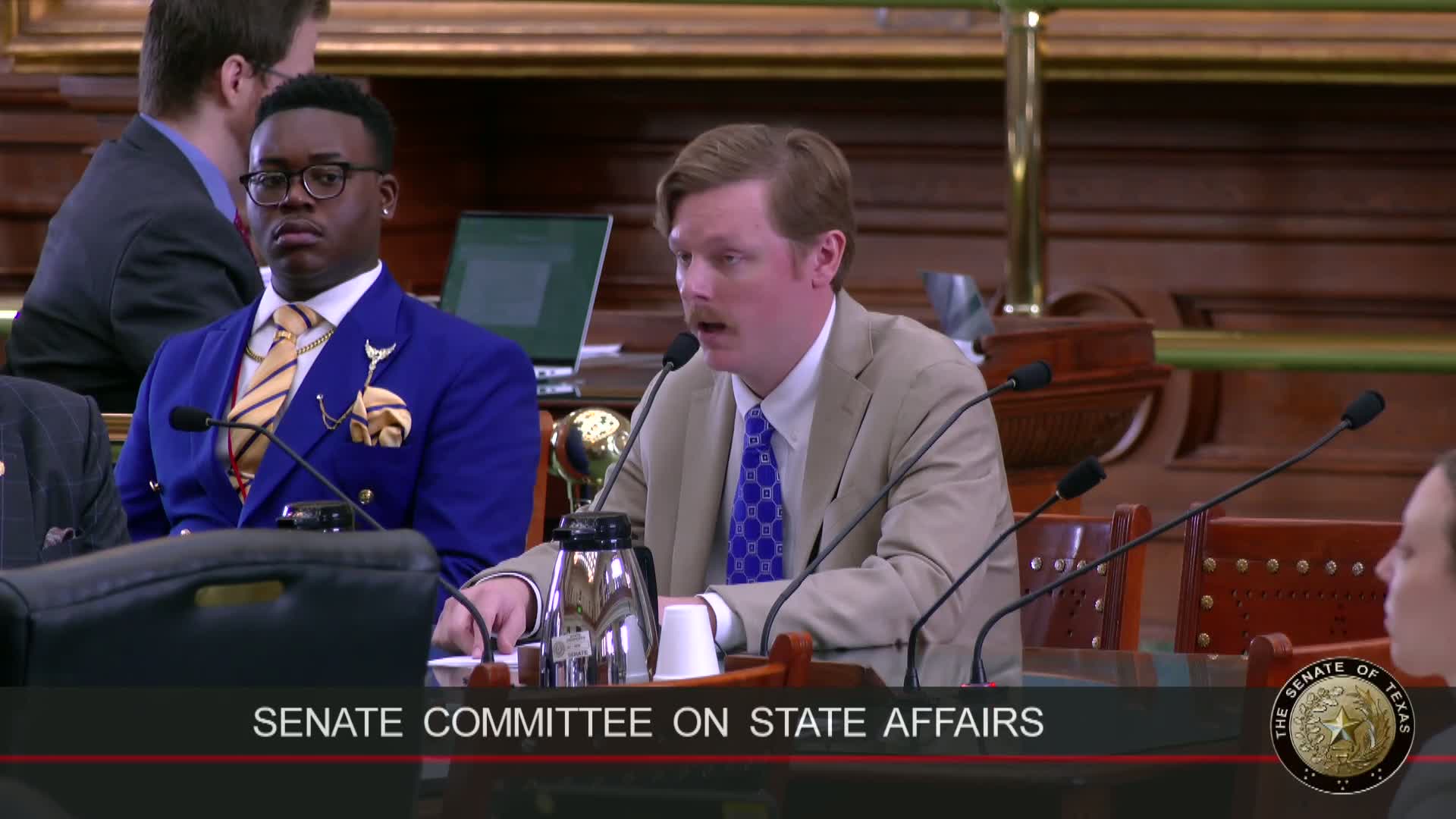Article not found
This article is no longer available. But don't worry—we've gathered other articles that discuss the same topic.

Committee considers bill to bar licensing agencies from denying or disciplining licensees for sincere religious beliefs

Bill would protect attorney general interview notes from discovery in enforcement cases

Committee reviews bill to disclose foreign funding in lawsuits targeting defense contractors

Senate committee hears bill to make daylight saving time permanent in Texas

